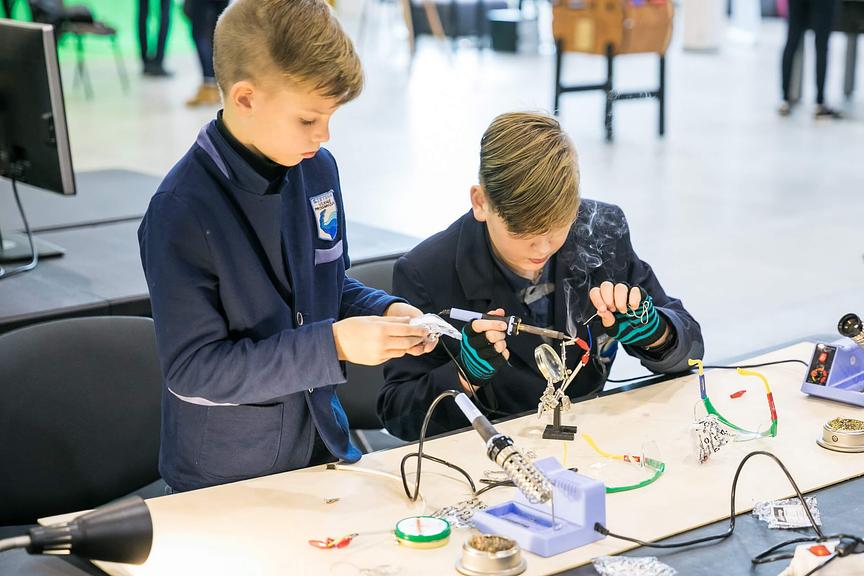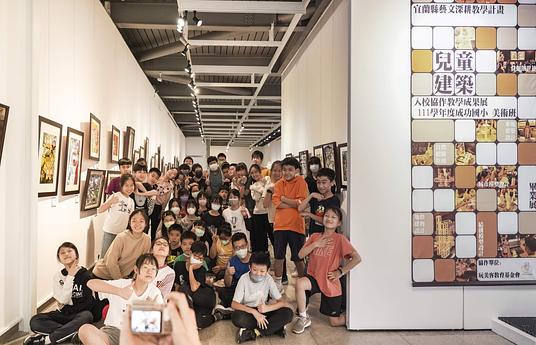What we do?
We’re a bottom-up IT education initiative which aims to teach kids how to start coding, give basics of computational thinking and encourage technical creativity.
“Microcomputers for kids” foundation, mostly lead by volunteers, in one year did more than anybody could imagine, and no other private initiative did anything close to it. During our first year, we managed fundraise and donate more than 20 thousands of “BBC Micro:bit” microcomputers to every 5th grader in Lithuania. At the same time we organised plenty of workshops where our volunteers trained kids and their teachers. For the second year we were seeking even higher goal - to integrate this tool into formal education, so to have more up-to-date computer science education at Lithuania’s schools and follow the big-scale dream - make Lithuania IT country. In order to do that we started a partnership with 40 schools, provided full toolkit and motivated to work, learn and teach kids in innovative manner by making technical projects.
Support by society - initial idea was very welcomed by society
The initiative got traction because of active support from society members, who had faith in this simple idea and strongly believed than even little investment can make a difference in IT education. There were more than 700 different sources of monetary support, including individuals, school alumnis, local businesses, local governance institutions, and of course IT professionals. Most of the supporters got the idea straight, so that computational thinking and basics of computer science will encourage technical creativity within students, our future engineers.
While doing things, what haven’t been done before, we quickly realised, that giving the tool won’t be enough. So we offered whole lot of support, which goes together with an idea. We invited and connected people from different areas: IT professionals, university and high school students and other community members. All of them united in order to travel around the country and teach kids basic lessons using micro:bits.
This is next level of sharing economics, which is not so common in our country.
Why we do it?
IT learning material is out of date - time to act now
There are several gaps in our current computer science curriculum in Lithuania, especially in formal middle-level education. One of them, our current ICT teaching material is more than 10 years behind. Other, not of a less importance, there were little community involvement in updating it. Since computer science innovations evolves faster than we can teach it at schools, it makes us mostly only consumers while actually next generation should become empowered creators and technology leaders. In order to reach that we want to make a difference and show to all the kids how to start programming easily as well as use and understand technologies
We are here to help out schools and teachers to make a difference and use technologies for better learning, understanding and creativity. And not to waste a second and start acting right away. That’s why we gave a new toll micro:bit to kids and teacher, organised number of online and offline courses, prepared detailed instructions, provided with an inspiring technical creativity projects and what’s most important - teachers in any situation have personal technical support from us.
Results and findings - there is a potential everywhere, not only in capital (big cities)
So what we’ve understood after one year of experimental, new and ambitious initiative? We found out that there’s a huge area in IT education field where we can make a positive change. Lithuanian IT teachers need support and inspiration which could come from our side - firstly through hearing their actual needs and then by offering an acceptable material to learn from. Also being bottom-up initiative, allows us to look for more original ways to encourage teachers’ potencial in a whole country.
We move forward
Our goal is to make a positive impact on education system, using our combined knowledge with IT other disciplines teachers, offering them trainings, seminars, innovative equipment as micro:bit electronics toolkits, motivation and all the support needed.
Our first year was about giving new tool to kids with provided intro trainings, second year was way more about the changing education system as such by motivating teachers to use the whole micro:bit electronics toolkit straight ahead in the classroom, create material technical projects and learn together with children. We invited teachers not to be afraid of failure and step out from the comfort zone by making extraordinary upgraded toys projects.
At the same time we created new generation integrated lessons and step by step getting to the main idea - to make that different disciplines teachers get IT knowledge and use it in the classroom to make education process more effective.
While doing all of the above, we also managed to gather around active member community of teachers, IT professionals, businesses, educators and volunteers, where all members are helping each other and creating awesome ecosystem for future engineers.



